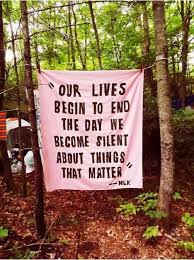When 20-year-old Brandon Webber was killed by U.S. Marshals June 11, the emotional aftermath tapped into so many lingering concerns – the regularity of fatal shootings by law enforcement with the predictable absolution by prosecutors, the uneven treatment of minorities in the school to jail pipeline, the militarization of law enforcement, and most of all, the many trip wires lay in front of too many young African Americans’ lives.
That’s why the daunting challenge at this point is to identify anyone who could be accepted as an honest broker whose investigation of the shooting would be objective and authoritative, including circumstances leading up to it – from Hernando to Frayser; whether the Wild West reputation of the U.S. Marshal’s Office factored into a shooting in which the young man’s body was riddled with bullets; a review of the on-the-ground decisions by law enforcement in Frayser and the neighborhood’s reaction in its aftermath; and an examination of a life that in only two decades took a promising youth from the honor roll to lying dead in the street.
While many facts are being argued, one thing is inarguable: there is widespread mistrust of officialdom that prevents the normal official channels from being able to reassure minority neighborhoods in the fairness of the existing system.
That said, the importance of this moment in time extends far beyond the tragic ending of this young man’s life and the spontaneous outrage directed at law enforcement. In a minority majority city and metro with one of the highest rates of child poverty in the U.S, it is in our self-interest to improve and increase the options for the life of every child in this community.
Sadly, Brandon Webber’s story is anything but uncommon and as long as that remains the case, the story of Memphis can never have the happy ending that we all want.
We wrote about all this on September 17, 2014, and we republish it here:
The young man – African American, 23 years old – sat at a picnic table behind a Germantown assisted living facility with his head in his hands.
He was exhausted and lost. He is working two jobs to support his new baby, and his schedule and the pressures of a growing family were catching up with him. He wanted to see a time when things would be better, a time when he could find one job that would support his young family.
There are tens of thousands of young African-Americans like him in Memphis, doing the best that they can under difficult circumstances to do what is right and play by the rules. All they want is the opportunity to have the money to provide their families with the basics and hope that if given a chance, they can move to the middle class.
He believes that with hard work, he can find a way for a better life for his baby. But it is getting harder and harder to convince himself that there is a way. As this young man fought with the reality that he might have limited options for the future, it was painful to talk with him about his hopes for a better time.
That’s because we now know that the research shows that at only 23 years old, his future is likely written. The odds are stacked against him, because the majority of people born into the bottom stay there. The coincidence of their births limits their options and throws up formidable barriers. It means that even when they show heroic determination, they are climbing a steep hill where the top is persistently out of reach.
The Forgotten Memphians
It’s a hard thing. To look into the eyes of a young man looking for some hopeful words that will encourage him that he’s dealing with a temporary hardship, it was impossible to deliver up bromides about the American Dream and that anyone can get ahead with hard work and an fierce work ethic. All that was possible was for me to express my admiration to him for his courage in fighting hard to provide for his family.
It’s one of the hardest parts of living in Memphis, facing young men and women aching for something better and knowing that the structural problems facing this community place it out of reach for too many of them. All the motivational speeches, inspirational speakers, and “pull yourself up by your bootstraps” rhetoric are mere distractions, essentially overlaying middle class attitudes on lives in poverty and increasing the disconnect between who we say we are and who we want to be while spending too little time making sure that everyone can be part of the journey.
Memphians like the young man working at the assisted living facility are largely forgotten and ignored. Many of them are like him, working two jobs and still not earning a living wage for the basics of life. They don’t make it into the headlines. They are merely the faces of the inequality that defines and divides Memphians into the haves and the have-nots, those with options for the future and those trapped into lives centered on picking the best option from a list of bad ones.
The assault by some teenagers of three people at the Kroger at Poplar Plaza continues to dominate the headlines, particularly as television news broadcasts enflame their viewers with stories notable for playing to stereotypes, oversimplifications, and overstatements.
No one condones the attack by one person on another, but the emotional barrage connected to the outrage about the assault continues to the point that there is no opportunity to pivot to a constructive conversation that might serve the better interests of the entire city.
Coincidences of Birth
But, talking to the young man outside the Germantown assisted living facility, it was impossible to wonder where the outrage is for lives like his, journeys largely defined by dead-ends and blind alleys. Where is the outrage for 150,000 people who live in concentrated poverty without the means to provide the basics for their families? Where is the outrage for the 65,000 children whose birthright is abject poverty? Where is the outrage about policy decisions that regularly choose to pay $30,000 a year for a jail cell rather than $2,500 for a family intervention that has been proven to turn around the lives of children?
It all speaks to one of the most uncomfortable facts of life in Memphis: where someone is born largely sets out their options for the futures.
That so many people who have the good fortune to be born into middle class families in middle class neighborhoods credit their success solely to their own ingenuity rather than to the head start in life that they received at birth is one of the most disingenuous attitudes expressed in public debate.
The fact that it is often espoused by people who also see no reason for programs to fight poverty, to fund proven interventions, or to pay for the meager safety net programs that are the threads holding together the fabric of so many of our people’s lives make it even more disturbing, because there is no duplicity more obvious than when the attacks on the poor are wrapped in the flag of faith and patriotism.
It’s The System
Why there should be any moral or personal superiority associated with a coincidence of birth is a mystery to us, but suffice it to say that every system is perfectly designed to achieve exactly the results it achieves.
The Memphis system is designed to create low incomes, perpetual poverty, and deep inequality. Here’s the thing: The Memphis metro economy is the 42nd largest in the U.S. at $68 billion and the per capita slice of that GDP is $49,604 for every person in the region. And yet, 20 percent of Memphians subsist on less than $13,000 a year.
There is a point at which the low incomes and the families in poverty can no longer be explained away as a coincidence. It is the result of economic policies built on cheap labor and on political policies based on low investments in the triggers for change. It is after all what the system is perfectly designed to achieve.
While we have all the data we need to frame up today’s problems and challenges for tomorrow, it’s the human face of it all that should shame us into action.
Discussions About Discussions
Memphis seems to have numerous discussions about the need for candid discussions – on the link between race and poverty, family distress, early childhood interventions, declining neighborhoods, urban education, minority-owned businesses, roots of crime, low graduation rates, and low birth weight babies.
But the truth is they are all the same discussion. The bigger truth is that we know what works.
Many of the answers are already underway, but most are underfunded and largely unknown to mainstream Memphis. Most of them need opportunities to plug into a larger plan in which connections between initiatives can yield greater returns. Some of them are producing impressive results, but need to be brought to scale so they touch more of the families who need them, particularly those that have been shown to increase the high school graduation rates.
We have said before that Memphis has no margin for error, and that is because too many of its people have no margin for error. That’s why it is in the enlightened self-interest of every person in this metro to insist on an agenda of opportunity that attacks poverty and increases opportunity for every citizen of Memphis, and that is the rich promise of the Blueprint for Prosperity, Mayor Wharton’s innovative program to reduce poverty by 10 points in 10 years.
Preparing for 2019
When concentrated poverty is amplified by challenges like economic segregation, sprawl, and a languishing economy, there is no city in America with greater motivation than Memphis to create a culture of opportunity for every citizen.
Memphis is five years away from celebrating the bicentennial of its founding. The unanswered question is what kind of community will Memphis be as it enters its third century – one where we are still talking about the problems or one where we have begun to take dramatic action to change the city’s trajectory…and its narrative…and its future.
There’s no argument that the choice is ours. Sixty-five thousand children living in poverty await the answer.





Wow, Tom. What a wonderful essay. Thank you.
This excerpt taken from a recently article published in the Daily Memphian, provides a look from the inside of someone growing up in the environment that Brandon did:
“Delvin Lane, a youth counselor and former gang member, said Webber’s competing personas is actually a familiar scenario.
“I was a honor student,” Lane said. “I went to school, I paid attention and did my homework and made good grades.”
But when he came home, Lane said things were different.
“When I came back to the community, it was all about survival and having things,” he said. “You have things by hustling. Learning how to shoot dice, sell marijuana, sell cocaine. It was a lifestyle from age 11 all the way up.”
Education can actually play into fulfilling the role of street life, Lane said.
“You have to be smart to be a drug dealer,” he noted. “A lot of them have taken advantage of education, so they do perform in school. But when they go home, the community sucks them in. A lot of these young people put on two masks.”
That quote that stood about to me that was where Mr. Lane said the ‘the community sucks them in.”
So moving forward how can the community evolve from one that feeds the destruction of the youth to one that lifts them up and makes success the desirable path ? How does one catalyze this evolution? I don’t think there is an easy answer. Communities and culture don’t rapidly change.
However, I do think continued prison reform is going in the right direction. The Daily Memphian recently published an article on training inmates how to program/code. Studies, have shown a major reduction in recidivism when inmates are able to find employment soon after release, which makes sense.
It’s humbling to think that ones success is largely attributed to what family and community they were born into.
Umm, Brandon Webber didn’t rob a bakery to feed his family. He stole a car even though he already had one. And then he attacked marshals with deadly weapons. That was his personal system designed perfectly to achieve the result it did.